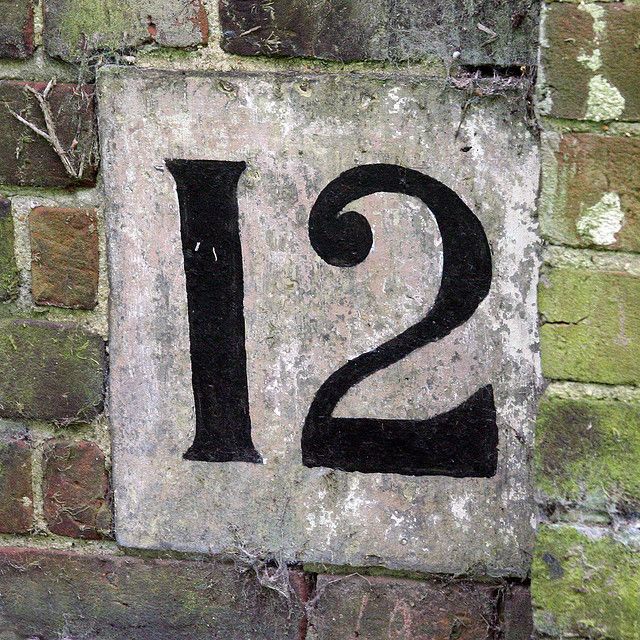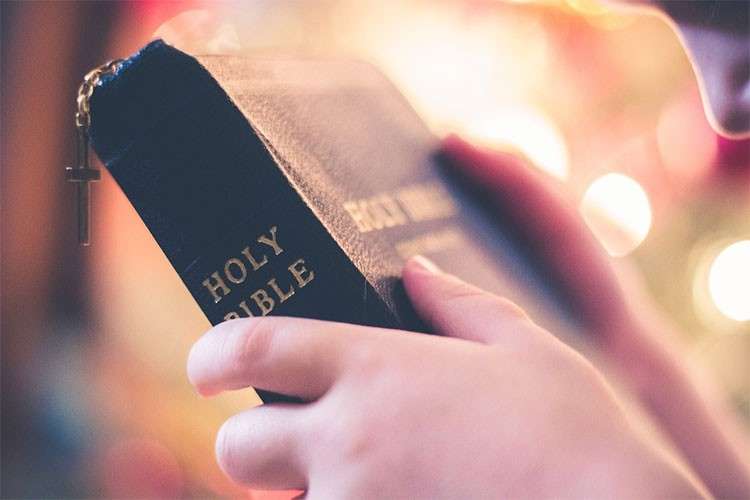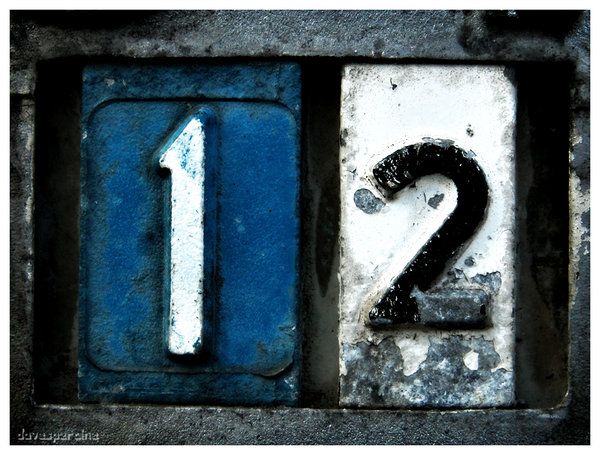What Is The Prophetic Meaning Of Biblical Number 12 In The Bible?
The biblical number 12 in the Bible is mentioned a total of 187 times. It has a fair level of authority that transcends most other angel numbers.
Author:Mia ThompsonReviewer:Matteo CaravetaJan 12, 2024130.1K Shares1.9M Views

Biblical number 12appears 187 times in the Bible. The number appears 22 times in the book of Revelation alone. The meaning of the number 12, which is considered a perfect number, is that it represents God's power and authority while also serving as a perfect governmental foundation. It can also represent completion or the entire nation of Israel.
For example, Jacob (Israel) had twelve sons, each of whom represented a tribe founded by a prince, for a total of twelve tribes. Ishmael, Abraham's son through Hagar, had twelve princes as well.
Every week, God instructed that twelve unleavened loaves of bread be placed in the temple with frankincense next to each of the two piles that were to be made. The priests were commanded to change the bread every Sabbath day (Leviticus 24).
What Does The Biblical Number 12 Mean In The Bible?
Number 12 typically means perfection or authority, as indicated in this article, and is frequently used in a political context. For example, the 12 tribes of Israel are named after Jacob's 12 sons. There are also 12 minor prophets scattered throughout the Old Testament.
The biblical number 12 appears 187 times in the Bible, but it is especially prominent in Revelation, indicating the final authority and perfection of God's kingdom.
To demonstrate the perfection and authority of those who followed Jesus, Jesus chose 12 disciples, and the disciples later replaced Judas Iscariot with Matthias to keep the number at 12 (Acts 1).
Like the number three, not every instance of the number 12 is likely to be a 'good' kind of perfection. For example, Jesus heals a woman who has been bleeding for 12 years (Matthew 9:20-22). The 12 years may have symbolized how bad her condition was, describing the disease as a "perfect storm" with no apparent cure. Or it could mean that this was the end of a difficult period and that God was about to do something new.
However, 12 is more often than not associated with something positive. The new Jerusalem, for example, is brimming with the number 12. (gates, angels, foundations, etc., Revelation 21).
Where Does The Number 12 Appear In The Bible?
According to the Old Testament book of Genesis, Jacob had twelve sons, who later became the 12 tribes of Israel (Genesis 49:1-28). In addition, the breastplate of decision, also known as the high priest's breastplate, was encrusted with twelve stones representing Israel's twelve tribes (Exodus 28:15-21).
Furthermore, Shem, one of Noah's sons saved from the Great Flood by the Ark, was one of the Old Testament's 12 patriarchs.
The Israelites wandered in the desert after fleeing Egypt, according to Numbers13. They sent out 12 spies to scout the Promised Land, and only two of them were not intimidated by the Canaanites.
It's also worth noting that Elijah constructed an altar out of twelve stones, each representing one of Israel's tribes (1 Kings 18:31).
Moving on to the New Testament, it's worth noting that Jesus said the first words (at least, the first recorded words) about God in public when He was 12 years old (Luke 2:42-51). Jesus was seen at the temple, listening to and conversing with the teachers about God.
The 12 apostles and the authority they wielded with Jesus as their leader are described in the Holy Gospels. They were initially known as the 12 disciples, but they were later renamed the 12 apostles.
Furthermore, after Jesus fed the five thousand, the disciples collected 12 baskets of leftover food (Matthew 14:20).
According to Revelation 21:9-21, the foundation of the holy city in Heaven, New Jerusalem, was ornamented with 12 beautiful stones, and it was surrounded by 12 gates guarded by 12 angels. Each gate was named after one of Israel's 12 tribes, which, as you may know, were named after Jacob's 12 sons.
In the following chapter, John also witnessed the Tree of Life, which bore 12 different types of fruit that grew every month (Revelation 22:2).
What Does The Number 12 Mean Prophetically?
In biblical numerology, the number 12 represents everything in its entirety—the twelve tribes of Israel, the twelve stars, the twelve apostles, the twelve princes, and so on. The number 12 is also linked to anointed service.
In the Bible, a prophet of God anointed twelve men to carry out a specific task. Aaron and his four sons (anointed as priests in Exodus 29:7-9), Saul, David, David's son Absalom, King Jehu, Kings Joash and Jehoahaz of Judah, and King Solomon were among them.
Number 12 And An Anointed Service
In the Bible, twelve people are specifically mentioned as being anointed for a specific task or responsibility. They are Aaron and his four sons to serve as priests (Exodus 29:7–9), and Saul (1 Samuel 10:1), David (1 Samuel 16:13), and Solomon (1 Kings 1:39) to rule over a united Israel.
Some anointed David's son Absalom, who wanted to take his father's throne but was killed (2Samuel 19:10), to be king. The remaining three specially anointed kings are Israel's King Jehu (2Kings 9:6), Judah's Kings Joash (2Kings 11:12) and Jehoahaz (2Kings 23:30).
Additional Info On Biblical Meaning Of 12
The first time Jesus' words are recorded in the Bible, he is twelve years old (Luke 2:42).
The high priest's breastplate, also known as the breastplate of decision, was encrusted with 12 stones. Each stone represented one of Israel's tribes. The Urim and Thummim were part of the breastplate of the High Priest. They were primarily used to seek God's advice on important matters (1Samuel 28: 3 - 6, Numbers 27:21 and so on). The Urim and Thummim are identified as breastplate stones by both the first-century historian Josephus and the Talmud.
Twelve, along with three, four, seven, and ten, are unmistakably used in a symbolic fashion in God's word.
Biblical Number 12 FAQs
What Is Significant About The Number 12 In The Bible?
According to some, the number 12 represents authority and governmental rule. As a result, the 12 sons and apostles are symbols of authority in both ancient Israel and the Christian church. Jesus is depicted with his 12 disciples in this painting of the Last Supper.
Why Is 12 A Special Number?
The smallest abundant number is twelve, because it is the smallest integer whose sum of its proper divisors (1 + 2 + 3 + 4 + 6 = 16) is greater than itself. Twelve is a sublime number, a number with an infinite number of divisors, and the sum of its divisors is also an infinite number.
What Are The 12 Stars In Revelation?
The twelve stars above her head represent both the twelve patriarchs of Israel (God's original people) and the twelve apostles (renewed people of God). Of course, this symbolism has been interpreted in various and more subjective ways, particularly in relation to various devotional forms.
Are The 12 Apostles?
These are the names of the twelve apostles: first, Simon, also known as Peter, and his brother Andrew; James son of Zebedee, and his brother John; Philip and Bartholomew; Thomas and Matthew the tax collector; James son of Alphaeus, and Thaddaeus; Simon the Cananaean, and Judas Iscariot, the one who betrayed him.
Conclusion
Overall, the biblical number 12 had a significant impact on the Bible and our daily lives in general. When Jacob had 12 sons, he perfected his presence in Israel, and the new city described in the book of Revelation has 12 angels, 12 gates, 12 sons who formed 12 tribes, and so on.
So, the next time you see the number 12, remember your life's purpose and the profound meaning it holds.
May this post has helped you understand the symbolism of the 12th angel number. You've seen that the number 12 is proof that God speaks through numbers.
When you see this number again, rejoice because you are not of this Earth. If anything, you are a member of His kingdom, and you are destined for greatness.

Mia Thompson
Author
Mia Thompson is a versatile writer at Kansas Press, delving into a range of topics including news, spiritual exploration, astrology, and numerology. With a passion for delivering insightful and informative content, Mia's articles provide readers with valuable perspectives and thought-provoking insights into these intriguing subjects.
She is dedicated to creating content that resonates with readers and fosters a deeper understanding of complex topics.

Matteo Caraveta
Reviewer
In the heart of Rome, Matteo Caraveta was born under the influence of the number 9, a symbol of universal love and completion. His path into numerology was illuminated during a life-changing encounter on his 21st birthday, a date that numerologically signifies the beginning of a new cycle, under the mystical skies of Sedona, Arizona. This experience, marked by the convergence of powerful numerical energies, reshaped his destiny.
Matteo's numerology practice is enriched with the vibrational essence of numbers, particularly the harmonious number 2, symbolizing balance and partnership, which guides his consultations. His most profound moment came when he used the energy of number 5, the emblem of dynamic change, to navigate a client through a tumultuous career shift, leading them to a path filled with purpose and prosperity.
Now, Matteo Caraveta stands as a beacon of light in the numerical maze, guiding souls with the wisdom of numbers, where every consultation is a step towards understanding the universe's grand design. His journey embodies the transformative power of numerology, making Matteo not just a numerologist, but a navigator of life's numerical currents.
Latest Articles
Popular Articles

